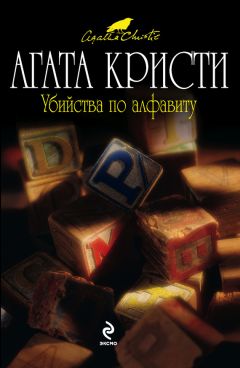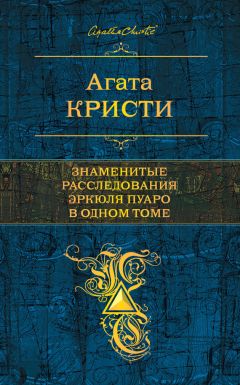Agatha Christie - Английский язык с Агатой Кристи. Убийства по алфавиту
exquisite [ɪksˈkwɪzɪt], flair [flɛǝ], share [ʃɛǝ]
Things go on here much as usual. Charlotte is moderately free from pain. I wish one could say more. You may remember Thora Grey? She is a dear girl and a greater comfort to me than I can tell you. I should not have known what to do through this bad time but for her. Her sympathy and interest are unfailing. She has an exquisite taste and flair for beautiful things and shares my passion for Chinese art. I was indeed lucky to find her. No daughter could be a closer or more sympathetic companion. Her life had been a difficult and not always a happy one, but I am glad to feel that here she has a home and a true affection.
"You see," said Franklin (вы видите). "That's how my brother felt to her (вот как мой брат чувствовал по отношению к ней). He thought of her like a daughter (он думал о ней, как о дочери). What I feel so unfair is the fact (что я чувствую таким несправедливым, это факт) that the moment my brother is dead (что в тот момент, когда мой брат мертв), his wife practically turns her out of the house (его жена практически выставляет ее из дома)! Women really are devils, M. Poirot (женщины действительно дьяволы, мсье Пуаро)."
"Your sister-in-law is ill and in pain (ваша невестка больна и /страдает/ от боли), remember (помните)."
"I know (я знаю). That's what I keep saying to myself (это /то/, что я продолжаю повторять самому себе). One mustn't judge her (нельзя судить ее). All the same (все равно = и тем не менее), I thought I'd show you this (я думал, что покажу вам это). I don't want you to get a false impression of Thora (я не хочу, чтобы у вас сложилось неправильное впечатление о Торе) from anything Lady Clarke may have said (из чего-то, что могла сказать леди Кларк)."
Poirot returned the letter (Пуаро вернул письмо). "I can assure you," he said (я могу заверить вас), smiling (улыбаясь), "that I never permit myself to get false impressions from anything (что я никогда не позволяю себе складывать неверное впечатление из чего-то) anyone tells me (что кто-то говорит мне). I form my own judgments (я формирую мои собственные суждения = сам формирую мои суждения)."
unfair [ˈʌnˈfɛǝ], permit [pǝˈmɪt], judgment [ˈʤʌʤmǝnt]
"You see," said Franklin. "That's how my brother felt to her. He thought of her like a daughter. What I feel so unfair is the fact that the moment my brother is dead, his wife practically turns her out of the house! Women really are devils, M. Poirot."
"Your sister-in-law is ill and in pain, remember."
"I know. That's what I keep saying to myself. One mustn't judge her. All the same, I thought I'd show you this. I don't want you to get a false impression of Thora from anything Lady Clarke may have said."
Poirot returned the letter. "I can assure you," he said, smiling, "that I never permit myself to get false impressions from anything anyone tells me. I form my own judgments."
"Well," said Clarke, stowing away the letter (убирая письмо прочь; to stow — складывать, укладывать), "I'm glad I showed it to you anyway (я рад, что я показал вам его в любом случае). Here come the girls (вот идут девушки). We'd better be off (нам лучше выходить)."
As we left the room (когда мы вышли из комнаты), Poirot called me back (Пуаро позвал меня назад). "You are determined to accompany the expedition, Hastings (вы намерены сопровождать экспедицию, Гастингс)?"
"Oh, yes. I shouldn't be happy staying here inactive (я не буду счастлив, оставаясь здесь бездействующим)."
"There is activity of mind as well as body, Hastings (существует активность ума, равно как и тела, Гастингс)."
"Well, you're better at it than I am," I said (ну, у вас это лучше получается, чем у меня).
"You are incontestably right, Hastings (вы бесспорно правы, Гастингс; contest — дискуссия, спор; to contest — опровергать, оспаривать; ожесточенно спорить). Am I correct in supposing (прав ли я в предположении) that you intend to be a cavalier to one of the ladies (что вы намереваетесь стать кавалером одной из дам)?"
stow [stǝʋ], incontestably [ˌɪnkǝnˈtenstɪblɪ], cavalier [ˌkævǝˈlɪǝ]
"Well," said Clarke, stowing away the letter, "I'm glad I showed it to you anyway. Here come the girls. We'd better be off."
As we left the room, Poirot called me back. "You are determined to accompany the expedition, Hastings?"
"Oh, yes. I shouldn't be happy staying here inactive."
"There is activity of mind as well as body, Hastings."
"Well, you're better at it than I am," I said.
"You are incontestably right, Hastings. Am I correct in supposing that you intend to be a cavalier to one of the ladies?"
"That was the idea (так я и планировал)."
"And which lady did you propose to honour with your company (и которой из дам вы предложите честь вашей компании)?"
"Well — I — er — hadn't considered yet (еще не решил)."
"What about Miss Barnard (как насчет мисс Барнард)?"
"She's rather the independent type," I demurred (она достаточно независимый тип, — возразил я).
"Miss Grey (мисс Грей)?"
"Yes. She's better (она лучше)."
honour [ˈɔ:nǝ], independent [ˌɪndǝˈpendǝnt], propose [prǝˈpǝʋz]
"That was the idea."
"And which lady did you propose to honour with your company?"
"Well — I — er — hadn't considered yet."
"What about Miss Barnard?"
"She's rather the independent type," I demurred.
"Miss Grey?"
"Yes. She's better."
"I find you, Hastings (я нахожу, что вы, Гастингс), singularly though transparently honest (необычайно, хотя и прозрачно честны; singularly — особенно, необычно; transparent — прозрачный, просвечивающий)! All along you had made up your mind to spend the day with your blonde angel (с самого начала вы решили провести день с вашим белокурым ангелом; to make up one's mind — принять решение, решить)!"
"Oh, really, Poirot (о, действительно, Пуаро)!"
"I am sorry to upset your plans (мне жаль расстраивать ваши планы), but I must request you to give your escort elsewhere (но я должен попросить вас предложить сопровождение кому-то еще)."
"Oh, all right (о, хорошо). I think you've got a weakness for that Dutch doll of a girl (я думаю, у вас есть слабость к этой девушке, /похожей на/ голландскую куклу)."
"The person you are to escort is Mary Drower (человек, которого вы должны сопровождать, это Мэри Дроуер) — and I must request you not to leave her (и я должен просить вас не покидать ее)."
"But, Poirot, why (но, Пуаро, почему)?"
"Because, my dear friend (потому, мой дорогой друг), her name begins with a D (что ее имя начинается с /буквы/ «ди»). We must take no chances (мы не должны рисковать)."
singularly [ˈsɪŋɡjʋlǝlɪ], transparently [trænsˈpɛǝrǝnt], request [rɪˈkwest]
"I find you, Hastings, singularly though transparently honest! All along you had made up your mind to spend the day with your blonde angel!"
"Oh, really, Poirot!"
"I am sorry to upset your plans, but I must request you to give your escort elsewhere."
"Oh, all right. I think you've got a weakness for that Dutch doll of a girl."
"The person you are to escort is Mary Drower — and I must request you not to leave her."
"But, Poirot, why?"
"Because, my dear friend, her name begins with a D. We must take no chances."
I saw the justice of his remark (я понял справедливость его замечания). At first it seemed far-fetched (сначала оно показалось надуманным; far-fetched — привезенный издалека; натянутый, неестественный). But then I realized (но затем я понял) that if A.B.C. had a fanatical hatred of Poirot (что если у Эй-би-си была фанатическая ненависть к Пуаро), he might very well be keeping himself informed of Poirot's movements (он, вполне вероятно, держит себя в курсе передвижений Пуаро). And in that case (и в этом случае) the elimination of Mary Drower might strike him (уничтожение Мэри Дроуер может поразить его) as a very neat fourth stroke (как очень ловкий четвертый удар; neat — аккуратный; ловкий).




